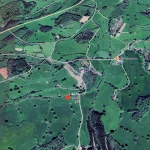UPDATE3 UK Culture Secretary Hauls in ISPs to Expand Internet Censorship
The UK government’s culture secretary, Maria Miller, has called in major mobile operators, broadband ISPs and online content giants (BT, Sky, Facebook, Twitter etc.) to a special summit on 17th June 2013 where she intends to urge stricter censorship of internet websites and services that distribute “harmful material”.
According to the FT (Paywall), the summit will mostly focus on tackling online child abuse and terrorist content that became a greater target following the recent Woolwich attack in London.
Advertisement
Miller also wants to see firms making it harder for related content to be upload and downloaded, although it’s not clear how this would be achieved or in precisely what context she was speaking. One proposal though appears to envisage the option of “new protocols” that would govern how ISPs respond to such content. It’s all very vague.
An Aide to Maria Miller said:
“Enough is enough. There isn’t a comprehensive approach to dealing with this issue. We want to get all these people in a room to explain what they are doing. It’s not good enough for them to throw up their hands and say ‘It’s all very difficult’.”
It’s perhaps worth pointing out that all of the big mobile and broadband ISPs are already voluntarily restricting access to child abuse sites through the Internet Watch Foundation (IWF). In addition Facebook are also known to be quite strict against pornographic content in general.
But today most of the worst material is spread through underground services, which ISPs have almost zero control over. Similarly ISP blocks can only ever be skin deep and are thus so easy to avoid that even children can do it. Incidentally this isn’t the ISPs fault, it’s just how the internet works and that’s one of the problems that politicians often struggle to comprehend. In this sense Miller would appear to be talking to the wrong people and what’s really needed is international coordination to delete such content at source.
The other issue here is one of mission creep. Few would disagree with the need to stop child abuse content or terrorist sites but as usual this is often just a mask for plans to target a much wider selection of online content and services (porn, copyright infringement etc.) where the definitions can quickly begin to trap legitimate sites. Commercial ISPs and security firms make for very poor judges.
Advertisement
O2’s on-going censorship of websites that dedicated themselves to helping male victims of domestic violence and rape is just one example (here). We’ve also seen mobile providers block major online retail sites because they contained images of underwear (the same images you see in the high street), as well as restricting access to church websites, political sites and various other incidents (another example). As ever, when push comes to shove, ISPs would understandably rather play it safe but this can harm freedoms.
Peter Bradwell, Open Rights Group, said:
“It is understandable that the Minister wants to see what can be done to deal with illegal content online. But powers to make decisions about what people are allowed to see and do on the Internet are significant and must be treated with great care.
Efforts to ensure a ‘safer’ online environment can inadvertently lead to overreaching or unaccountable powers or practices that block far too much content, for example. There are particularly serious problems when governments ask or expect companies to police content on their platforms, for example through industry practices.
We will be writing to the Minister to make sure that Open Rights Group and representatives of civil society are present.”
Nicole Robinson of business ISP Fluidata said:
“Regardless of your position on policing the internet, monitoring cyber activity isn’t going to stop. The question becomes not about whether policing the internet is acceptable, but rather how far is too far? When does policing the internet for those abusing it actually become an abuse to the benign users as well?“
Suffice to say that if the government are going to dictate what we can and cannot see then they should at least put in place a process to ensure that such content is being justly blocked and to remove any that are made illegally. It should not be a one way street, there does need to be accountability.
UPDATE 9:01am
Added some comments from the Open Rights Group and Fluidata above.
Advertisement
UPDATE 11:20am
Speaking of web blocking. The Australian Securities and Investments Commission (ASIC) today showed precisely what happens when states try to enforce censorship through skin deep ISP filtering systems. ASIC ended up blocking 250,000 websites because the 1,000 that they wanted to block were on shared web hosting and thus used the same IP address as the other 249,000 legal sites (here). This is one of the many reasons why Ofcom has previously warned against the use of mandatory web blocking.
UPDATE 8th June 2013
Added a comment from the UK Internet Service Providers Association (ISPA).
Internet Service Providers Association – Statement
ISPA and the wider internet industry shares government’s aims of making the online experience safer and has taken several steps to bring this about. We look forward to explaining this to government as they need to fully understand and appreciate what is already being done by industry to get the right policies in place.
Illegal content is dealt with using established mechanisms. ISPA helped found the Internet Watch Foundation to tackle images of child abuse and criminally obscene adult content, and works with law enforcement and industry to block and remove child abuse content. Industry will continue to work with the IWF, law enforcement and others in this important area. For material that is potentially illegal under the Terrorism Act 2006, Government has set up a dedicated police unit where the public can report material they are concerned about.
For content that is not illegal, industry has moved to make filtering tools more widely available to their customers, however filtering is only one part of the solution alongside education.
Mark is a professional technology writer, IT consultant and computer engineer from Dorset (England), he also founded ISPreview in 1999 and enjoys analysing the latest telecoms and broadband developments. Find me on X (Twitter), Mastodon, Facebook, BlueSky, Threads.net and Linkedin.
« Suffolk UK Reveals First Areas to Benefit from £40m Broadband Upgrade

















































Comments are closed